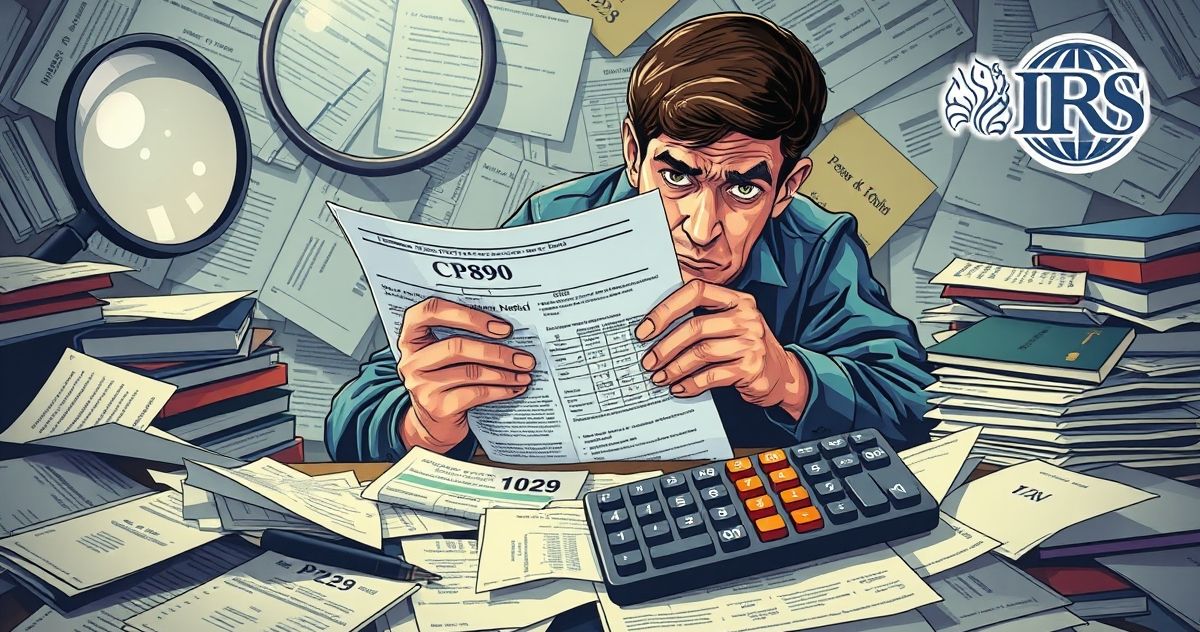What is the CP89O Notice?
The CP89O Notice is a formal communication issued by the Internal Revenue Service (IRS) to inform a taxpayer about significant alterations made to their tax account. This typically involves adjustments related to discrepancies or errors detected in their previously filed tax returns. The purpose of the CP89O Notice is to ensure that taxpayers are aware of these changes, understand the underlying reasons, and take any necessary actions to comply with revised tax obligations.
Primary Purpose of the CP89O Notice
The primary purpose of the CP89O Notice is to keep taxpayers informed about adjustments that the IRS has identified as necessary corrections to their filed tax returns. These adjustments can significantly affect the financial details such as balances due, expected refunds, and the correctness of reported income and deductions. By issuing the CP89O Notice, the IRS ensures that taxpayers are notified promptly, allowing them to respond appropriately, rectify any discrepancies, and ensure alignment with tax laws.
Key Features or Components
The CP89O Notice comprises several key components designed to offer a clear understanding of the situation:
- Explanation of Adjustments: The notice details each change made, offering explanations regarding the nature of discrepancies identified, such as inconsistencies in reported income or mismatches with third-party data, such as W-2s or 1099 forms.
- Impact on Balances: Whether the revision leads to a balance due, a reduced refund, or an increased refund, the notice provides explicit details. This section also includes any changes to due dates for payments or expected receipt of refunds.
- Interest and Penalties: If applicable, the notice outlines any penalties or interest that arise due to underpayments or overdue amounts resulting from the adjustments made.
- Next Steps: The notice often specifies actions required by the taxpayer, including instructions for payment if amounts are due, how to dispute findings if they disagree, and conditions under which an amended tax return may be necessary.
Filing and Compliance Requirements
Receiving a CP89O Notice requires the taxpayer to act promptly to comply with IRS recommendations or mandates. This can involve the following compliance requirements:
- Payment of Amounts Due: The IRS provides clear instructions on how amounts owing after adjustments should be paid, including options for online payment or installment agreements.
- Dispute Process: If taxpayers disagree with the IRS adjustments, the notice includes instructions to dispute the findings. This typically requires substantiated documentation to back the original filing details.
- Filing Amended Returns: In cases where discrepancies exist beyond those adjusted by the IRS, a taxpayer may be required to file an amended tax return to rectify further concerns.
Penalties or Consequences for Non-Compliance
Ignoring a CP89O Notice or failing to respond appropriately can lead to serious consequences:
- Accrued Penalties and Interest: Failure to pay any revised tax balance by the due date may result in penalties and interest, increasing the total financial burden over time.
- Collection Actions: The IRS may pursue collections, which can entail tactics like wage garnishments or bank levies, if taxes remain unpaid following this notice.
- Risk of Audit: Ongoing inconsistencies in tax compliance can heighten the likelihood of future audits, which may uncover additional issues for the taxpayer.
Importance of the CP89O Notice in Tax Resolution
The CP89O Notice plays a critical role in the tax resolution process by ensuring that taxpayers are immediately informed of discrepancies, allowing for prompt corrective measures. It serves both as a corrective tool and a preventative measure, making taxpayers more vigilant about their tax filings. By understanding and acting upon a CP89O Notice, taxpayers can proactively manage potential tax debt issues, impede the accumulation of penalties, and avoid further enforcement actions. Compliance with such notices is essential not only to remain in good standing with tax authorities but also to safeguard one’s financial health.
The implications of addressing a CP89O Notice extend beyond mere avoidance of penalties; it positions taxpayers to engage effectively with potential recalculations and resolutions, thereby facilitating better long-term tax management. By following recommendations or rectifying discrepancies, taxpayers contribute towards maintaining holistic financial compliance, encouraging a transparent and accurate reflection of their fiscal activities.

